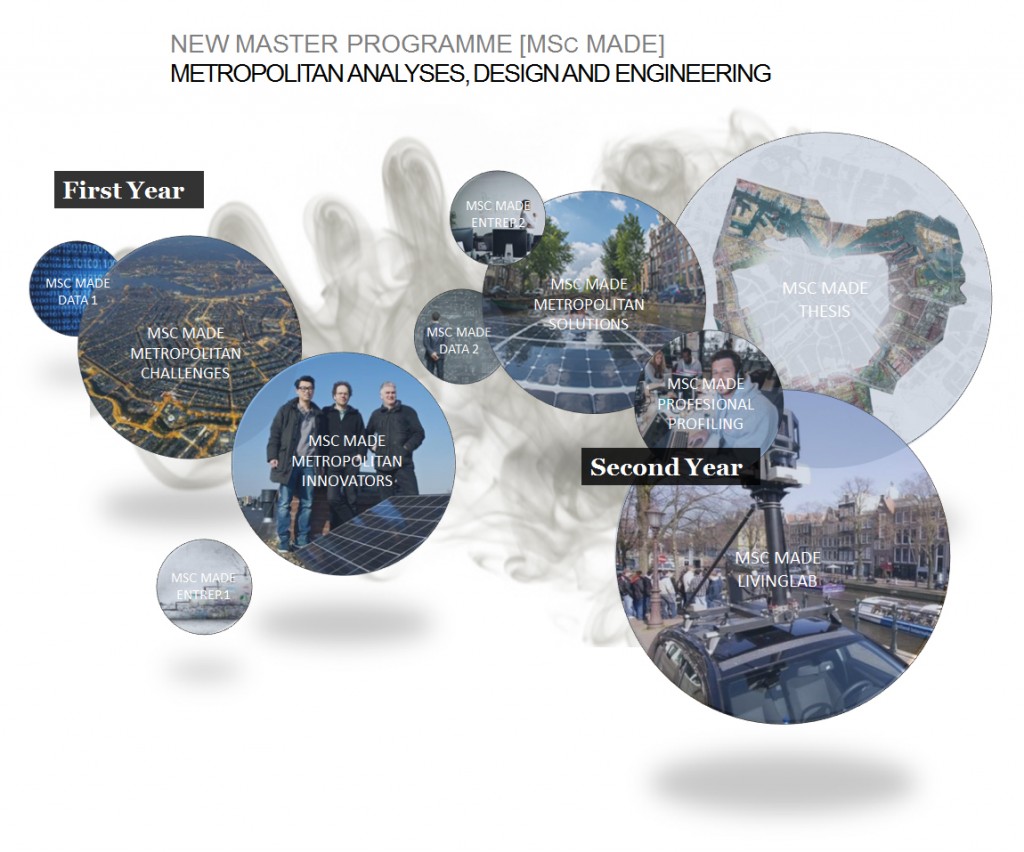The first lucky 7 students have graduated from the MSc MADE (Metropolitan Analysis, Design and Engineering) programme! They received their well-earned MSc diploma during a festive graduation ceremony at AMS Institute. Two years ago, they joined AMS Institute together with elven others for classes on metropolitan challenges, entrepreneurial skills, and data analysis in the urban context. Now they have developed to be the first generation of interdisciplinary metropolitan innovators.

On September 24th, we have celebrated this milestone together with their family and friends when receiving their joint degree diplomas from Delft University of Technology and Wageningen University & Research. This is extra special as these are the first engineering degrees that are handed out in the city of Amsterdam in over 450 years! It has been quite an adventure to write this progrogramme from 2016 until its successful accreditation, and, subsequently, I am happy to have been the first director of this programme. Continue reading



